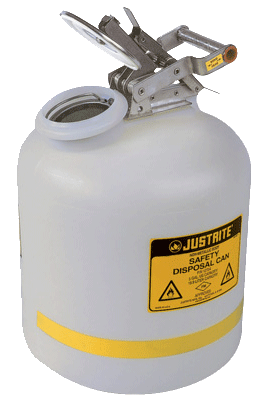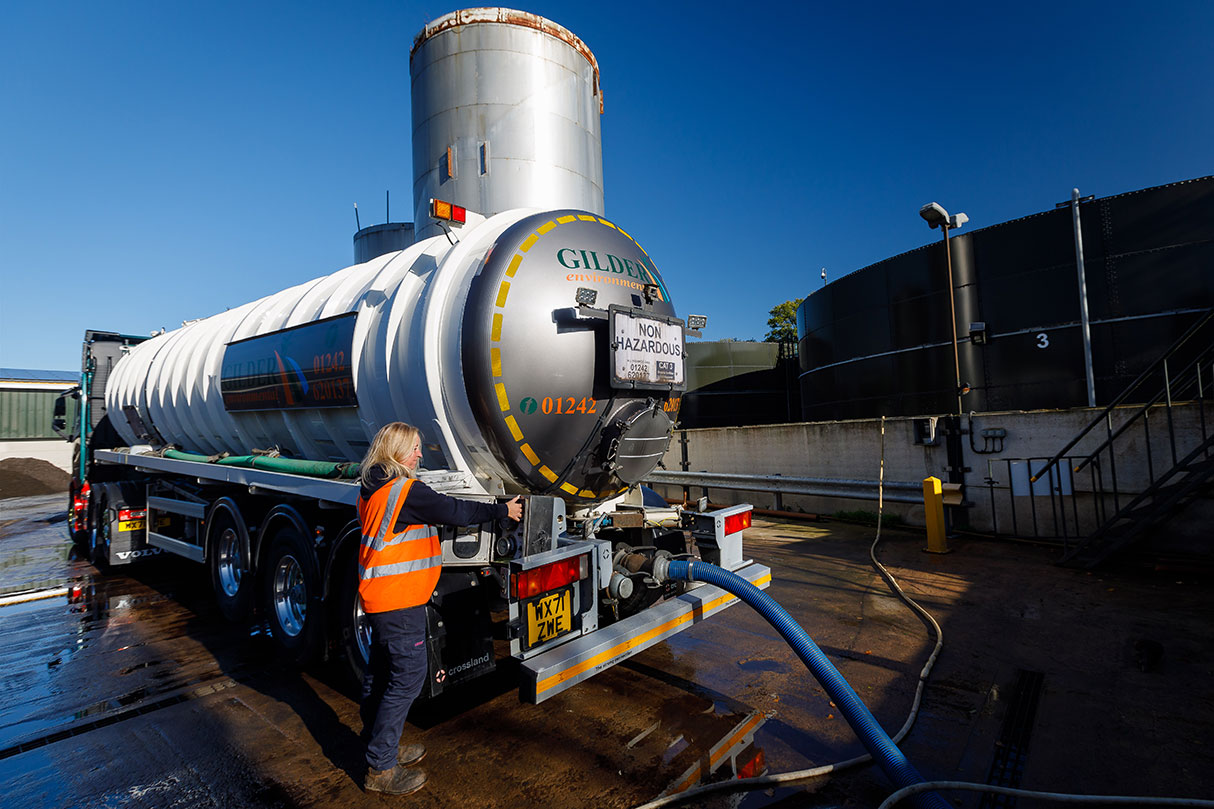Comprehensive Liquid Waste Disposal: Solutions for Residences and Companies
Comprehensive Liquid Waste Disposal: Solutions for Residences and Companies
Blog Article
Recognizing the Comprehensive Refine of Liquid Garbage Disposal: Finest Practices and Environmental Influence Factors To Consider
The management of liquid waste disposal is a diverse problem that requires a comprehensive understanding of numerous finest methods and their associated environmental influences. From the kinds of fluid waste produced to the approaches utilized for collection, therapy, and final disposal, each action plays a critical function in securing environments and public health. As regulatory requirements advance and modern technology breakthroughs, the conversation around these processes becomes significantly significant. What ramifications do these modifications hold for future sustainability efforts, and just how can stakeholders make certain that they are properly attended to?
Kinds Of Fluid Waste
Understanding the different kinds of fluid waste is vital for efficient management and disposal practices. Liquid waste can be broadly classified into a number of types, each calling for distinct handling and therapy methods.
Industrial fluid waste commonly contains unsafe materials, including heavy steels, solvents, and chemicals, created during manufacturing processes. These wastes necessitate stringent governing compliance to safeguard human health and the setting. Residential fluid waste mostly describes wastewater generated from homes, consisting of sewage and greywater, which, although less poisonous, can still pose significant risks if poorly managed.
Agricultural liquid waste, consisting of overflow from ranches, typically consists of fertilizers and pesticides that can lead to ecological degradation otherwise treated adequately. Clinical liquid waste, generated from healthcare centers, consists of infected fluids such as bodily liquids and chemicals, needing specialized disposal approaches to prevent infection and environmental contamination.
Last but not least, oil and oil waste, generally generated by dining establishments and vehicle markets, can trigger severe obstructions in sewage system systems if not handled effectively. Understanding these categories promotes targeted techniques for therapy, conformity with regulations, and efficient disposal approaches, inevitably advertising environmental sustainability and public health and wellness safety and security.

Collection Techniques
Reliable collection methods are vital for the correct administration of fluid waste, guaranteeing that it is gathered safely and successfully before treatment or disposal. Numerous methods are used depending upon the sort of liquid waste generated, the quantity, and the particular qualities of the waste.
One usual technique is the usage of committed collection tanks or sumps, which are developed to record fluid waste at the resource. These systems commonly include pumps that promote the transfer of waste to larger storage containers or therapy facilities. Furthermore, mobile collection systems equipped with vacuum technology are used in circumstances where waste is produced intermittently or in hard-to-reach places.
For commercial setups, closed-loop systems can properly lessen leaks and spills, allowing for the healing and reuse of fluid waste. It is also necessary to train personnel on proper collection protocols to reduce dangers associated with unsafe compounds.
Additionally, applying normal upkeep timetables for collection devices makes sure optimum performance and safety. The assimilation of advanced monitoring systems can improve collection performance by providing real-time data on waste levels and possible threats. In general, reliable collection techniques are foundational to sustainable fluid waste administration techniques.
Therapy Processes
Treatment procedures play an important function in the monitoring of liquid waste, transforming potentially dangerous products right into recyclable sources or secure effluents - liquid waste disposal. These procedures can be extensively categorized into physical, chemical, and organic methods, each tailored to deal with particular pollutants present in the waste stream
Physical treatment approaches, such as sedimentation and purification, work by getting rid of suspended solids and particle issue. These strategies are commonly the very first step in the therapy chain, successfully decreasing the lots on subsequent procedures. Chemical treatments entail the use of reagents to counteract dangerous materials, precipitate heavy metals, or oxidize natural toxins, thereby improving the safety and security of the effluent.
Biological treatment procedures, consisting of activated sludge systems and anaerobic digestion, maximize the natural capabilities of microbes to break down raw material. These techniques are specifically efficient for wastewater including naturally degradable pollutants. Advanced therapy technologies, such as membrane purification and advanced oxidation processes, are significantly employed to accomplish higher degrees of purification.
Incorporating a mix of these treatment approaches not just makes sure compliance with regulatory standards however also advertises ecological sustainability by recovering beneficial resources from liquid waste.
Disposal Options
Just how can organizations make certain the responsible and risk-free disposal of fluid waste? Reliable disposal alternatives are crucial for protecting public wellness and the atmosphere. The main approaches consist of land disposal, incineration, and therapy followed by discharge right into community wastewater systems.
Land disposal involves the cautious control of liquid waste in assigned garbage dumps, making sure that it does not seep into surrounding dirt or water. Incineration, on the various other hand, topics fluid waste to high temperatures, transforming it into ash and gases, which need correct purification to minimize discharges. This approach appropriates for hazardous wastes that can not be treated through typical ways.
In instances where fluid waste can be treated, organizations may get redirected here select biological or chemical therapy procedures to neutralize hazardous components before releasing the treated effluent into metropolitan systems. This path normally lines up with regulative requirements, making sure that the effluent fulfills safety and security standards.
Inevitably, organizations should perform complete analyses of each disposal alternative to determine its feasibility, taking find out this here into consideration variables such as waste make-up, governing conformity, and possible risks to health and wellness and the environment. By selecting proper disposal methods, businesses can add to a responsible waste monitoring method.
Environmental Impact
The ecological impact of fluid garbage disposal is a critical consideration for companies looking for to reduce their environmental footprint. Improper disposal methods can lead to significant contamination of water sources, soil deterioration, and negative effects on neighborhood ecosystems. For circumstances, hazardous fluids can seep into groundwater, posing dangers to drinking water products and marine life. In addition, the discharge of neglected or inadequately dealt with waste into surface area waters can lead to eutrophication, resulting in oxygen deficiency and the subsequent death of fish and other organisms.

To mitigate these influences, companies must embrace ideal techniques such as carrying out extensive waste treatment processes, advertising recycling and reuse, and adhering to governing criteria. By taking a positive strategy to liquid waste monitoring, entities can dramatically reduce their ecological footprint while supporting sustainable growth goals. Ultimately, an extensive understanding of the ecological impacts connected with liquid garbage disposal is essential for informed decision-making and liable stewardship of natural deposits.
Final Thought
Reliable monitoring of fluid waste is essential for safeguarding ecological integrity and public health and wellness. By taking on ideal practices in disposal, collection, and treatment, along with adherence click this to regulative criteria, the potential for dangerous contamination of ecological communities can be substantially lowered. Continuous advancements in modern technology and processes add to sustainable waste monitoring initiatives. Ultimately, a comprehensive understanding of liquid garbage disposal not only minimizes ecological effects yet also cultivates a commitment to responsible source monitoring and environmental stewardship.
The management of fluid waste disposal is a multifaceted concern that requires a detailed understanding of various finest practices and their connected environmental impacts. From the kinds of liquid waste generated to the approaches employed for collection, treatment, and last disposal, each action plays an important function in protecting environments and public health and wellness.The ecological effect of fluid waste disposal is an essential consideration for companies looking for to decrease their environmental footprint. Eventually, a detailed understanding of the environmental effects connected with fluid waste disposal is vital for notified decision-making and responsible stewardship of all-natural sources.
Inevitably, an extensive understanding of fluid waste disposal not just minimizes ecological influences yet additionally cultivates a dedication to liable resource management and ecological stewardship.
Report this page